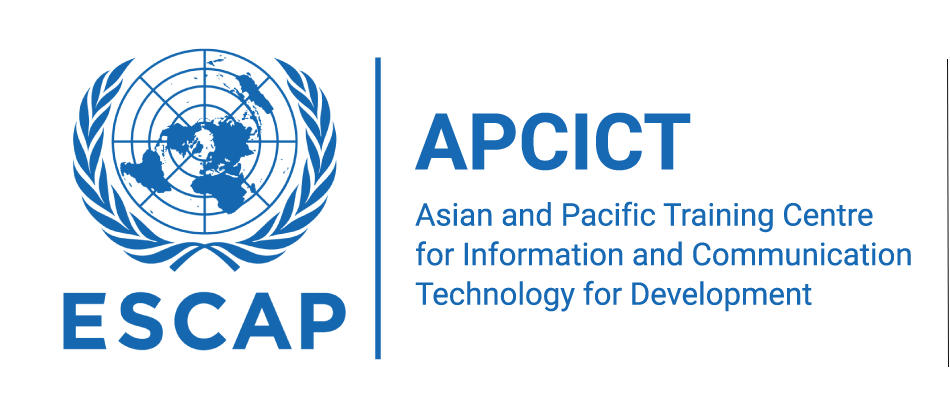APCICT will be organizing a breakout session on 11 November at the Asia Economic Community Forum in Incheon, Republic of Korea. Entitled “ICTs as a Transformative Enabler of Economic Growth,” discussions will revolve around three key pillars: investment in ICTs as a component of a stimulus package; inclusive economic growth through ICTs; and ICT-enabled green growth. A pre-conference training workshop on Funding Options for ICT for Development will be held from 9 to 10 November.
10 November 2009
Note to Editor No. N/34/2009
 |
 |
| Regional Workshop on Funding Options for ICTD (9-10 Nov) | Panelists of the Breakout Session at AECF (11 Nov) |
 |
 |
| Fourth Session of the Governing Council of APCICT (13 Nov) | Partners Meeting of the Academy (14 Nov) |
INCHEON (UN/ESCAP Information Services) –The United Nations is exploring how information and communication technologies (ICTs) can lead the way in Asia and the Pacific achieving greater economic growth, stronger development and help in combating climate change.
The Asian and Pacific Training Centre for Information and Communication Technology for Development (APCICT), a regional institute of the UN Economic and Social Commission for Asia and the Pacific (ESCAP), will be organizing a breakout session on 11 November at the Asia Economic Community Forum (AECF) - a gathering of leaders from academia, politics and business with aims to explore the Asian identity and the direction for future development
- in Incheon, Republic of Korea.
Discussions in the APCICT session entitled “ICTs as a Transformative Enabler of Economic Growth,” will revolve around three key pillars: investment in ICTs as a component of a stimulus package; inclusive economic growth through ICTs; and ICT-enabled green growth. Based on these discussions, lessons and recommendations for policies and actions directed at national, regional and international levels will be incorporated as part of AECF’s overall policy recommendations.
“At this juncture, it is critical that new technologies and knowledge contribute to innovative actions that create a positive win-win synergy between environment, economy and society at large – towards environmentally as well as socially sustainable economic growth,” said APCICT Director Hyeun-Suk Rhee.
The session will bring together about 200 experts from intergovernmental organizations, multinational ICT and management consulting firms, and government agencies from emerging economies in Asia, to discuss the role of ICTs in this economic downturn.
Participating institutions include Accenture, India’s Ministry of Communications and Information Technology, the National Information Society Agency of the Republic of Korea, and the Organisation for Economic Co-operation and Development. A former Commissioner of the Philippine Commission on Information and Communications Technology will also be one of the expert panellists.
A pre-conference training workshop on Funding Options for ICT for Development (ICTD) will be held from 9 to 10 November. More than 60 senior level government officials of national budgetary and planning bodies, and ministries of ICTs will attend. The workshop aims to provide practical guidelines and exchange best practices among countries of Asia and the Pacific on effective strategies and processes for identifying and securing funds for ICTD interventions. The workshop is based on the curriculum of APCICT’s “Academy of ICT Essentials for Government Leaders.”
Other APCICT events that will be held during the same week include the Fourth Session of the Governing Council of APCICT on 13 November to review the Centre’s work programme and achievements, as well as discuss the way forward in 2010; and the APCICT Partners Meeting of the Academy of ICT Essentials for Government Leaders on 14 November to further strengthen the network of national trainers and promote peer learning in order to close the ICT capacity building gap in countries of the Asia-Pacific region.
The Academy is a comprehensive ICTD curriculum for policymakers to fully leverage opportunities presented by ICTs to achieve national development goals and bridge the digital divide. Since its launch in June 2008, the Academy has been adopted, localized and rolled out in several countries in close collaboration with government ministries, national training institutes and universities. For more information on the Academy visit http://www.unapcict.org/academy.


